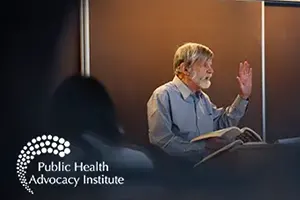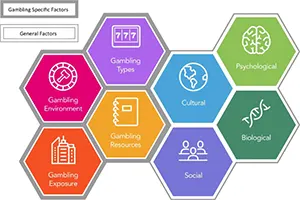 The Public Health Advocacy Institute (PHAI), a non-profit legal research center engaged in public health law and affiliated with Northeastern University School of Law in Boston, Massachusetts, has released a new video bringing to the fore the vulnerabilities of the “Responsible Gambling” model.
The Public Health Advocacy Institute (PHAI), a non-profit legal research center engaged in public health law and affiliated with Northeastern University School of Law in Boston, Massachusetts, has released a new video bringing to the fore the vulnerabilities of the “Responsible Gambling” model.
The association brings a novel approach to remote gambling in the US by prioritizing public health over the RG model, adopted by the gambling industry and the National Council on Problem Gambling (NCPG). The video features Mark Gottlieb, Executive Director of the PHAI, Dr. Harry Levant, the newly appointed Director of Gambling Policy, and Professor Richard Daynard, the center’s director. They bring attention to the urgent need to replace the current RG model with a comprehensive public health approach to tackle the effects of the unparalleled expansion of online gambling.
To introduce their stance on the critical issue, Dr. Harry Levant reminded the audience of the NCPG’s National Conference on Gambling Addiction and Responsible Gambling, currently underway in San Diego, California. Funded by the gambling industry itself, the conference did not include “a single piece of reform or regulation” that would be put under discussion. He emphasized the fact that a major weakness of the commonly adopted model was that it prioritized treatment over prevention.
Professor Richard Daynard drew attention to the addictive nature of gambling, explaining it was designed to get people “hooked on” it and to keep betting. Mark Gottlieb echoed his explanation by stating “the great irony” that gambling products were “irresponsibly designed and irresponsibly marketed” by the same industry that created the RG model. What the industry did was put the blame on consumers, rather than take the responsibility itself or provide better player protections, according to them.
Dr. Harry Levant further stated the ethical and scientific inappropriateness of the RG model, as consumers were presented with a “dangerously designed” highly addictive product. Professor Daynard spoke about gambling and other addictive products such as alcohol and tobacco and the fact that companies offering them “are cutting their own throats” by reducing the harm associated with them.
PHAI Explains the Idea Behind the Public Health Approach
 Instead of proposing a ban on online gambling and remote sportsbooks, the public health approach involves meaningful policy-making, reform, and proper regulation of the industry. As the executive director of the center explained, if the industry was left in its present state, the public would face an increasing health crisis.
Instead of proposing a ban on online gambling and remote sportsbooks, the public health approach involves meaningful policy-making, reform, and proper regulation of the industry. As the executive director of the center explained, if the industry was left in its present state, the public would face an increasing health crisis.
Ultimately, PHAI aims to advance the public health reform at both the federal and state levels: ”The expansion of online gambling without appropriate safeguards and regulation is an industry-driven ‘wild west’ environment, resulting in a looming public health crisis.”
In conclusion, Dr. Levant called for collaboration from gambling operators, politicians, and other researchers and encouraged all to join them in their mission to improve public health.